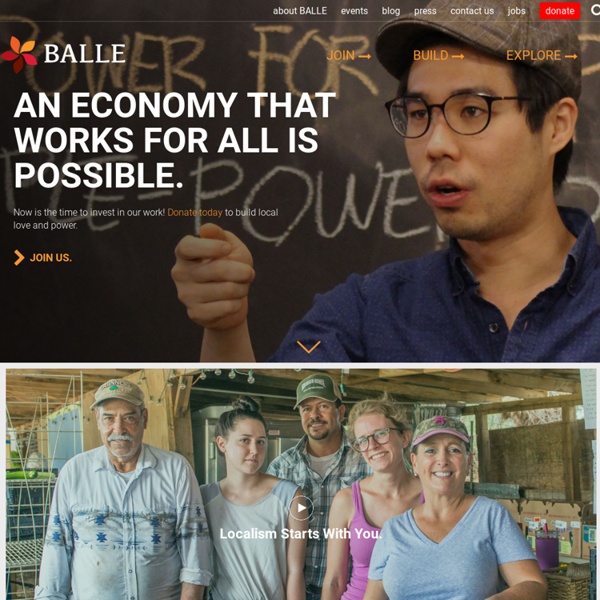



Inspire Institut Ecopousse LocalOrg Faire un don | Solidarités pour un Développement Humain Vous pouvez faire un don en ligne, via notre compte PayPal, en cliquant sur le bouton « Faire un don », présent sur chacune des pages des associations membres. Enfin, vous pouvez bien sûr remplir et envoyer le bulletin ci-joint avec votre chèque à l’ordre de « Solidarités pour un Développement Humain », à l’adresse suivante : Solidarités pour un Développement Humain, 13 rue Nungesser et Coli, 91170 Viry-Chatillon. Si vous souhaitez faire un don général au fonds de dotation et non à une association en particulier, vous pouvez le faire en cliquant sur le bouton « Faire un don » ci-dessous. Vous pouvez faire un don avec ou sans compte PayPal. Si vous avez besoin d’aide, vous pouvez vous rendre sur la page Aide – Don PayPal.
AMAR Resilience Economics | Sustainability and Investment Strategy Favoris Studies N°03/2014. Iddri, 2014. 32 p. Is the sharing economy a tool for ecological transition? The main objective of this report is to analyse the environmental potential of the sharing economy, considered in its full diversity, and the conditions for the realization of this potential. Highlights Reselling, giving, swapping, short-term renting and lending—with or without monetary exchange and whether practiced between individuals or through companies or associations—are all models that can help to increase the usage duration of resource-consuming goods. The environmental balance sheet of sharing depends on several conditions that are highly specific to each model. Public authorities should build an economic and regulatory framework that is favourable to virtuous models.
Les groupes du réseau Accueil › Le réseau › Les groupes › Liste des groupes Les groupes du réseau Catégories Tags Pour une Politique Sociale Responsable et Innovante Groupe Pour une Politique Sociale Responsable et Innovante - Ou, comment bâtir & mettre en œuvre une politique sociale durable ? Découvrir Philippe Béon Expert Compétition ou coopération ? Certaines entreprises concernées par l’urgence écologique pratiquent ce que les Américains qualifient de « radical collaboration ». Découvrir Entrepreneur d'avenir CAP 40 - Bourse des vraies valeurs Pour de nouveaux indicateurs de richesses, une bourse des vraies valeurs, un CAP40. Découvrir Voyage responsable Paris / Île-de-France Échangeons et partageons pour un tourisme responsable Découvrir NEORIZONS et NEO-BIENÊTRE Green IT : Allier Informatique et Développement Durable LYON / Rhône-Alpes Nous lançons un appel à candidatures pour composer le noyau dur du groupe et recruter des participants en vue du Parlement des EA 2013. Découvrir Pays de la Loire Découvrir Nantes Initiative Bel'm
Notre mission - La fondation Première des fondations politiques françaises et proche du Parti socialiste, la Fondation Jean-Jaurès agit depuis vingt ans pour construire un monde plus démocratique, inventer les idées de demain et comprendre l’histoire sociale et ouvrière. Construire un monde plus démocratique Avec son réseau de fondations et de partis politiques de gauche dans plus de cent pays, la Fondation Jean-Jaurès mène des actions dans le monde entier pour favoriser les processus démocratiques, former le personnel politique et soutenir les initiatives les plus prometteuses. Inventer les idées de demain Lieu de réflexion, de dialogue et d’anticipation, où débattent responsables politiques, syndicaux ou associatifs, universitaires et experts, la Fondation Jean-Jaurès contribue au renouvellement et à la diffusion des idées progressistes. Comprendre l’histoire sociale et ouvrière La Fondation Jean-Jaurès, créée par Pierre Mauroy, a été reconnue d’utilité publique en 1992.
Promoting Skillsharing | Learn Skills, share tools, save money and make great new friends Streetbank is very like Justfortheloveofit. It lets you share things and skills with your neighbours and join in with community discussions. If you'd like to move your Justfortheloveofit account over to Streetbank, just enter your email address below and we'll pull your details across. Enter your email here Why is this happening? Justfortheloveofit.org has grown very large very quickly, in fact there are over 50,000 of you! Is Mark still involved? Yes, Mark is now part of the Streetbank leadership team. Tell me more about Streetbank Streetbank and Justfortheloveofit are very similar, with similar aims, and ideals. Can I still use the old site? You can still reach the old site for a limited time from here if you need to read it or find some information.
HumaniSERV – Communauté d’échanges de services à but humanitaire